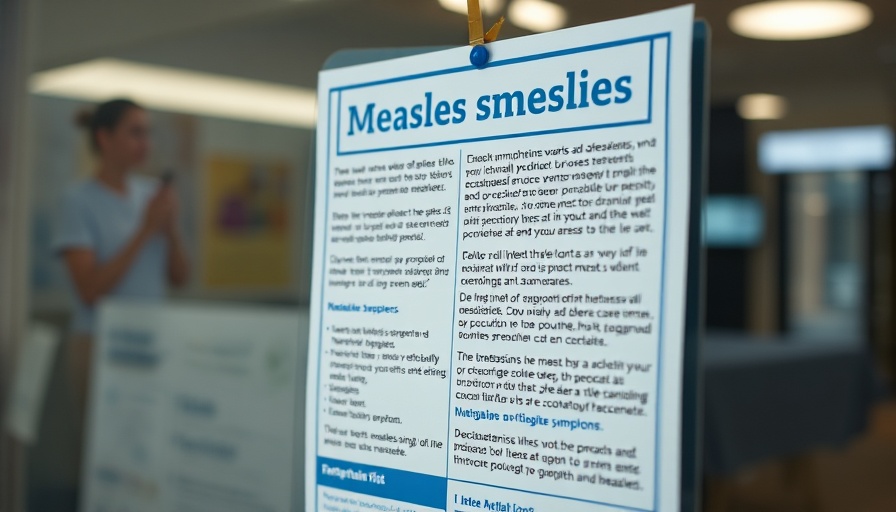
Understanding the Growing Misinformation on Measles
As the United States grapples with its worst measles outbreak in a decade, the association between vaccine misinformation and public response has never been clearer. The latest KFF survey reveals a concerning trend: while awareness of the outbreak remains strong among certain demographics, a significant number of parents, particularly those identifying as Republican, are largely uninformed. This disconnect raises questions about the sources of information shaping public opinion on vaccines.
The Polarizing Vaccine Debate
Approximately two-thirds of Republican parents are unaware of the escalating measles cases, while nearly the same percentage of Democratic parents are informed. This divide is striking, especially considering the skepticism towards vaccines predominating among Republican respondents. The survey indicates that Republican parents are twice as likely to believe the disproven narrative linking the measles vaccine to autism, which significantly undermines public health efforts aimed at promoting vaccination.
Why Misinformation Persists
Around 30% of parents mistakenly believe that Vitamin A can prevent measles infections, a claim popularized by influential public figures including Robert F. Kennedy Jr. Such misinformation is particularly dangerous as it can deter parents from vaccinating their children during a rampant measles outbreak. Public health advocates stress the importance of delivering accurate information and counteracting the misleading claims proliferated by figures in authority.
The Role of Media and Public Discourse
The impact of confusing messages is further exacerbated by media coverage that often fails to address the science clearly and decisively. Kelly Moore, president of Immunize.org, emphasizes that when experts provide conflicting signals, it leads to increased doubt and uncertainty about vaccine safety. Moreover, this environment of conflicting information ultimately affects parents’ decisions regarding child vaccination, potentially jeopardizing community immunity.
Future Implications for Public Health
As misinformation around measles and its vaccine continues to circulate, experts caution about the long-term public health implications. Inadequate vaccination can lead to outbreaks, further straining healthcare systems and putting vulnerable populations at risk. It is essential for communities, health advocates, and policymakers to unite in providing clear, evidence-based information to combat confusion about vaccines.
Taking Action Against Misinformation
The call to action is clear: we must prioritize factual discourse around vaccines. Parents and guardians are encouraged to seek reliable information from trusted health authorities and engage in dialogue about vaccines with healthcare providers. By doing so, we can protect ourselves and our communities from the resurgence of preventable diseases like measles.
 Add Row
Add Row  Add
Add 




 Add Row
Add Row  Add
Add 



Write A Comment